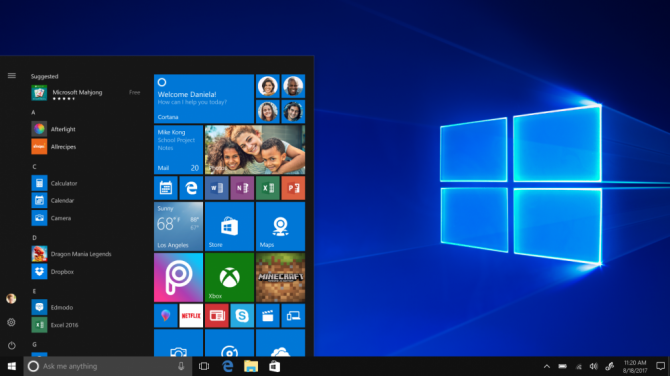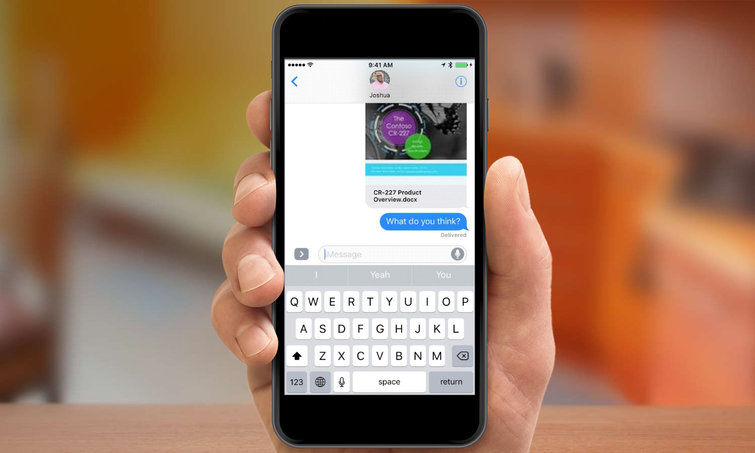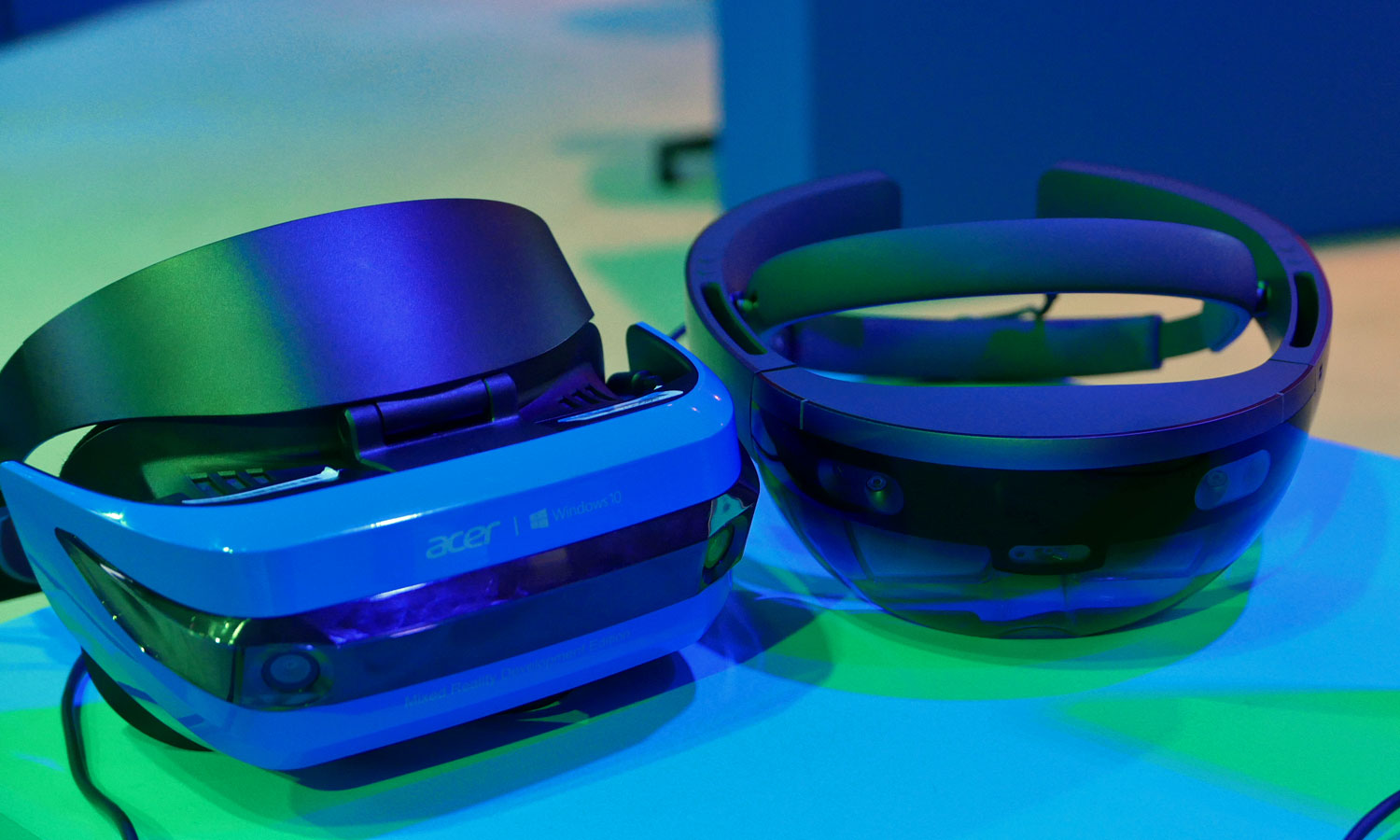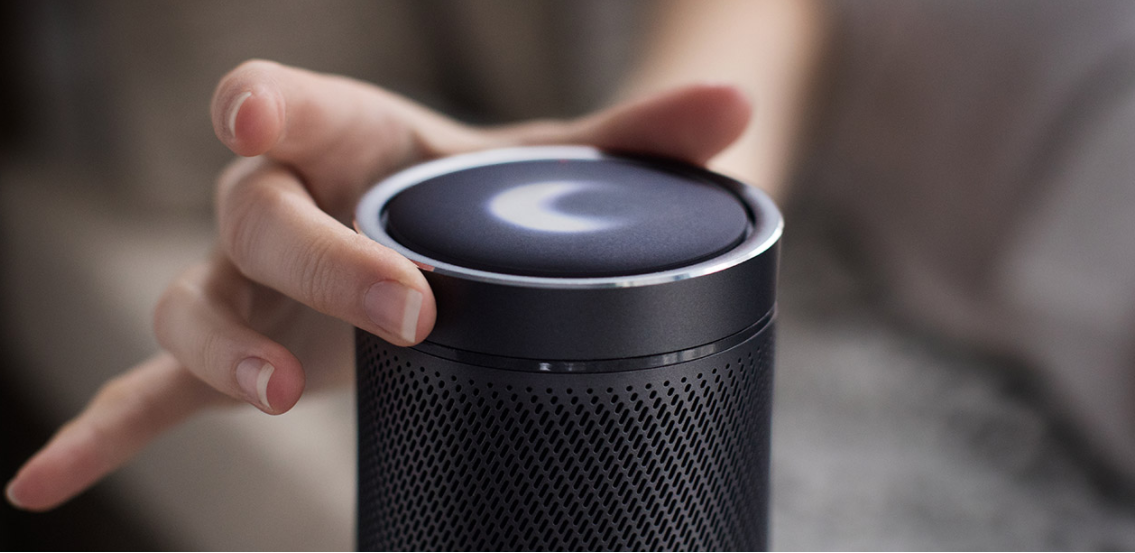4 Ways Microsoft Plans to Win the Future
Microsoft showed off its new vision at its Build developer conference, and its plans are revealing.
Moving far beyond Windows on the desktop, Microsoft wants to provide the platform for all of your devices, from handsets to headsets. At its recent Build developer conference and EDU event, the software giant laid out its vision of the very near future. Here are four ways Microsoft plans to become an even more ubiquitous part of your daily life.
You’ll download (good) apps from the Windows Store.

Today, most people download programs from their publishers, third-party vendors or open-source repositories. However, Microsoft really wants you to get all your software from its Windows Store, much in the way you get iPhone or Android apps from Apple’s and Google's stores, respectively.
Microsoft's upcoming Windows 10 S operating system, which is targeted at students, will only install apps that come from the Windows Store. Meanwhile, the company is adding more important software, such as iTunes and Autodesk, to the store.
The store promises more convenience, as it ensures a certain level of quality and security while allowing you to sync apps across different devices. The company also gets a share of revenue from apps sold through its store, while developers have the chance to build one program that can run on Xbox, phones, headsets and computers.
MORE: Windows 10 S Unveiled: Here's How It's Different
Windows will be on iOS and Android (sort of).

Ding dong! You hear that? It’s Windows Phone’s death knell. Microsoft has all but acknowledged that its mobile phone platform can't compete with Android and iOS. That’s why it’s focusing on putting its core functionality onto iOS and Android via apps.
For instance, to use the new universal Windows 10 keyboard, you’ll have to use its Word Flow keyboard. Want to use the “Continue Where You Left Off” feature? You’ll install Cortana on your phone.
You’ll have affordable VR, but no HoloLens.

Let’s make two things clear:
1. HoloLens is nowhere near ready for a consumer launch. It may never be.
2. Microsoft’s Windows “Mixed Reality” headsets are regular VR headsets.
HoloLens, while still amazingly cool, is shaping up to be an enterprise tool. That means you shouldn’t expect it to be available to the public for years (or maybe even longer). Almost every HoloLens demonstration I’ve seen has involved building something, showing off models at scale, providing detailed instructions or working in a space collaboratively with others.
MORE: I Got Lost in a World Where VR and HoloLens Collide
Considering the dev kit is still $3,000 and the enterprise version is $5,000, Microsoft won’t have it at a mass-market price for a while. Even then, developers will need to build tools that make it worthwhile. In other words, there are no holograms coming to your home anytime soon.
Acer’s "mixed reality" headset is Microsoft’s favorite consumer device to show off right now, but you’ll see similar options from HP, Lenovo, Dell and others soon. Despite Microsoft and partners call these products "mixed reality" devices, they only do VR, and on the Acer at least, the output is blurry around the edges. However, for $299 ($399 with controllers), the price is right for mass adoption.
Cortana will be your digital assistant.

Here’s where Microsoft has a lot of catching up to do. Many of the company’s recent announcements subtly say one thing: “Amazon was right.” By the end of the year, you’ll be able to buy Microsoft’s digital assistant in a speaker.
Cortana is getting its own speaker, courtesy of audio titan Harman Kardon, but it won’t be released until the fall. HP is also building its own Cortana device. Microsoft released a Cortana skills kit to developers; initial actions include telling the weather from Dark Sky and delivering pizza from Domino’s.
That’s all well and good, but Amazon’s Echo speaker and Alexa assistant dominate the market — More than 11 million units have been sold, according to Morgan Stanley’s estimates — with Google’s Home speaker in a distant second place. Alexa has more than 10,000 skills, so Microsoft is desperate for developers to jump on board and make its assistant the best. If they don’t get on board, you’ll probably be using Alexa instead. You may already be.
MORE: Invoke Speaker Is Microsoft's Answer to Amazon Echo
If Cortana has one advantage, it’s that it’s already built into millions of PCs running Windows 10. According to Microsoft, more than 145 million people use it in some fashion (but far fewer than the 500 million who use Windows 10 monthly), either speaking or typing, so at least there’s some familiarity. And it means your PC will be a smart home device, too. But Cortana has a lot of work to do to catch up with Amazon and Alexa.
Microsoft claims that AI will eventually reach all of its products, from Windows PCs to Xbox to Bing. The company’s new bot framework will, in theory, help organize your life and files, by scheduling meetings and summoning whatever you’re working on. In theory, they’ll work hand in hand with Cortana for seamless interactions. This is an area where Microsoft could surge ahead of Amazon (Amazon doesn’t really have a need to work on Windows PCs), but everywhere else, it has a lot of catching up to do.
Microsoft’s New Future
More than ever, Microsoft has its eggs in many baskets: Windows, high-end PC hardware, AR, VR, AI, cloud computing and Xbox, to name just a few. (We’ll hear more about the latter at E3, when the company discusses its 4K powerhouse, Project Scorpio.)
Microsoft will play a bigger role than ever in your digital life — that is, if it can court developers to give you experiences better than those from Google and Amazon. Microsoft says it will make Windows great, and that Windows will make your other platforms so much better, that you’ll want to use Microsoft services and apps everywhere.
Will you? Only time will tell.
Sign up to get the BEST of Tom's Guide direct to your inbox.
Get instant access to breaking news, the hottest reviews, great deals and helpful tips.
Andrew E. Freedman is an editor at Tom's Hardware focusing on laptops, desktops and gaming as well as keeping up with the latest news. He holds a M.S. in Journalism (Digital Media) from Columbia University. A lover of all things gaming and tech, his previous work has shown up in Kotaku, PCMag, Complex, Tom's Guide and Laptop Mag among others.

